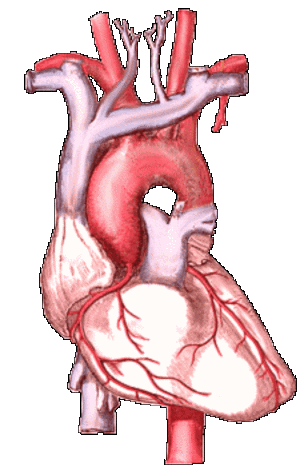I recently adopted a 6-year-old Italian Greyhound. He was surrendered by his previous owners, but the family passed his health records on to us because he had been diagnosed with arrhythmia , or an irregular heartbeat. This condition is caused by an irregularity in the electric impulses that regulate a dog’s heartbeat. This could manifest in a heartbeat that is too fast, too slow, or misses beats. Arrhythmia is not uncommon, and sometimes it will not have any negative effect. However, an irregular heartbeat could be a symptom of a more serious underlying condition.
Causes of Arrhythmia
The scientific reason for heartbeat irregularity is a change in the discharge rate of impulses from the sinoatrial node , otherwise known as the heart’s natural pacemaker. There are a number of underlying conditions that could affect signals from the sinoatrial node. First, the dog’s breathing naturally causes increases and decreases in heart rate. This is similar to humans. Feel your pulse as you breathe in and out, and you will notice that your pulse slows as you exhale. While this is a natural occurrence, the fluctuations could become exaggerated by some gastrointestinal and respiratory diseases. It could also be the result of head trauma that increases pressure within the dog’s skull. Diseases affecting the dog’s nervous system could be a culprit as well. In some cases, there is no recognizable cause.
Recognizing Symptoms
While the primary symptom of arrhythmia, an irregular heartbeat, can be difficult to recognize, there are other symptoms which might be more noticeable. If pauses between beats are prolonged, the dog could become physically weak. In serious cases the dog could lose consciousness due to lack of oxygen flow. Because arrhythmia is often linked to breathing, dog breeds with known breathing difficulties, such as bulldogs, shi-tzus, and Pekingese are more prone to develop the condition. If you recognize any of these symptoms, have a veterinarian examine your dog to try to identify the underlying cause.
Treatment
Your specific treatment of arrhythmia will depend on what your veterinarian has identified as the underlying cause. Because it can be a symptom of other conditions, the vet will recommend treatment for the cause of the irregular heartbeat rather than treating the symptom directly. You will continue treatment based on your vet’s recommendation until the specific cause is eliminated. If the irregularity is caused by your dog’s difficulty breathing or other physical limitations such as obesity, there may be no medical treatment necessary. In these cases, the vet might recommend that you limit your dog’s exercise to be sure it does not become overexerted or that you place your pet on a calorie restricted diet. In my Italian Greyhound’s case, the veterinarian’s diagnosis was that there is no underlying cause for his irregular heartbeat. The vet advised only that I make sure my dog does not play too hard or become overly excited. As long as I keep him relatively calm, he suffers no adverse health effects, and lives a happy life like any other dog.
Read other content from this contributor:
What should I feed my dog?
True cost of dog ownership
Non-prescription remedies for your dog’s upset stomach





